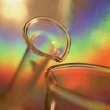 The Fingerprints Of God
The Fingerprints Of GodI found the premise of Barbara Bradley Hagerty's new book "Fingerprints of God" quite intriguing...
 Crowds, Solubility And The Future Of Organic Chemistry
Crowds, Solubility And The Future Of Organic ChemistryThis week I participated in a Social Media Day at NIST. During my talk I provided an overview of...
 Crowds, Solubility And The Future Of Organic Chemistry
Crowds, Solubility And The Future Of Organic ChemistryThis week I participated in a Social Media Day at NIST. During my talk I provided an overview of...
 Are There Facts In Experimental Sciences?
Are There Facts In Experimental Sciences?I recently attended an NSF workshop on eChemistry: New Models for Scholarly Communication in Chemistry...






